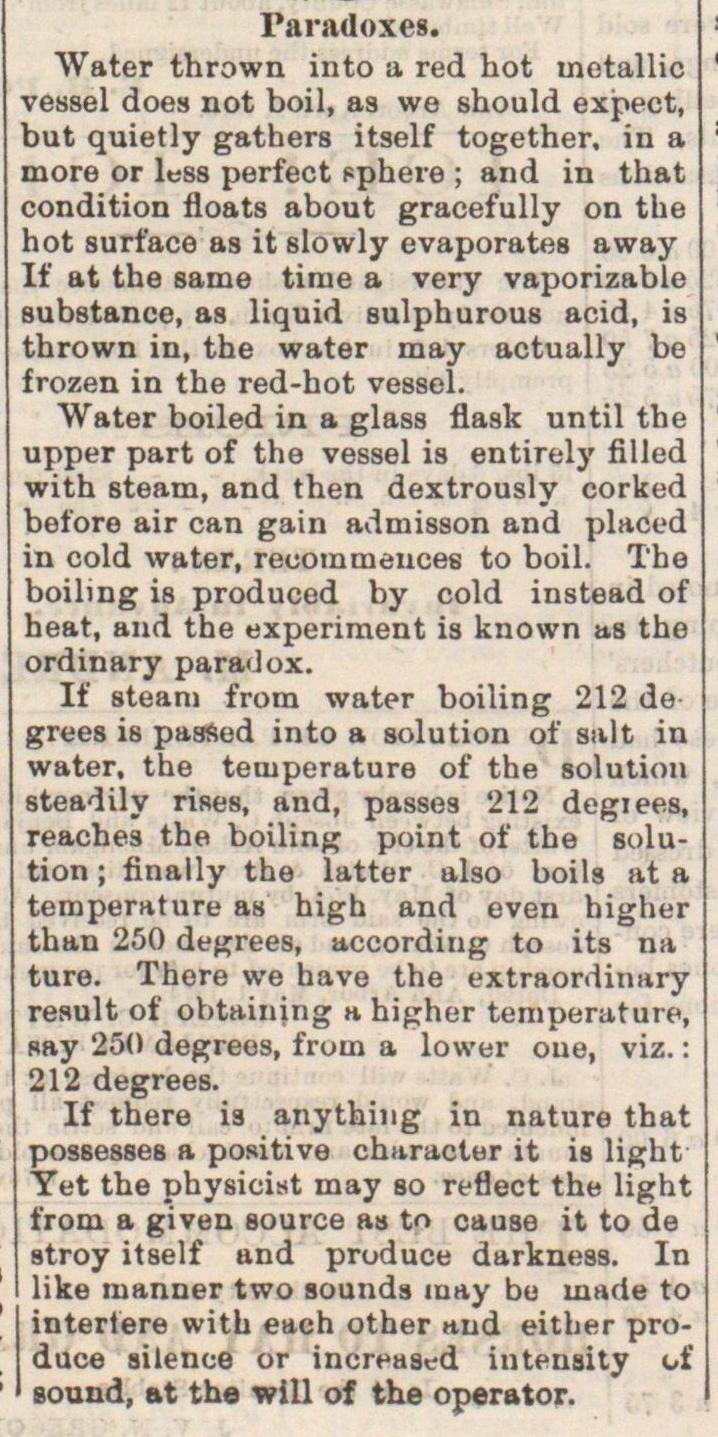Paradoxes

Water thrown into a red hot metallic ' vessel does not boil, as we should expect, but quietly gathers itself together, in a more or less perfect ppheie ; and in that condition floats about gracefully on the hot surfaco as it slovvly evaporates away If at the same time a very vaporizable substance, as liquid sulphurous acid, is thrown in, the water may actually be {rozen in the red-hot vessel. Water boiled in a glass flask until the upper part of the vessel is entirely filled with steam, and then dextrously corked before air can gain admisson and placed in cold water, recommeuces to boil. The boiling is produced by cold instead of heat, and the experiment is known as the ordinary paradox. If steani from water boiling 212 de grees is passed into a solution of salt in water, the teiuperature of the solution 8teaiily rises, and, passes '212 degiees, reaches the boiling point of the solution ; finally the latter also boils at a temperature as high and even higher than 250 degrees, according to its na ture. There we have the extraordinary result of obtaining a higher temperature, say 250 degrees, from a lower oue, viz. : 212 degrees. If there ia anything in nature that possesses a positive chitracter it is light Yet the physiciat may so reflect the light from a given souroe as to cause it to de stroy itself and produce darkness. In like manner two sounds may be made to interfere with each other and either produce silence or increased intensity of 1 souud, at the will of the operator.
Article
Subjects
Old News
Michigan Argus